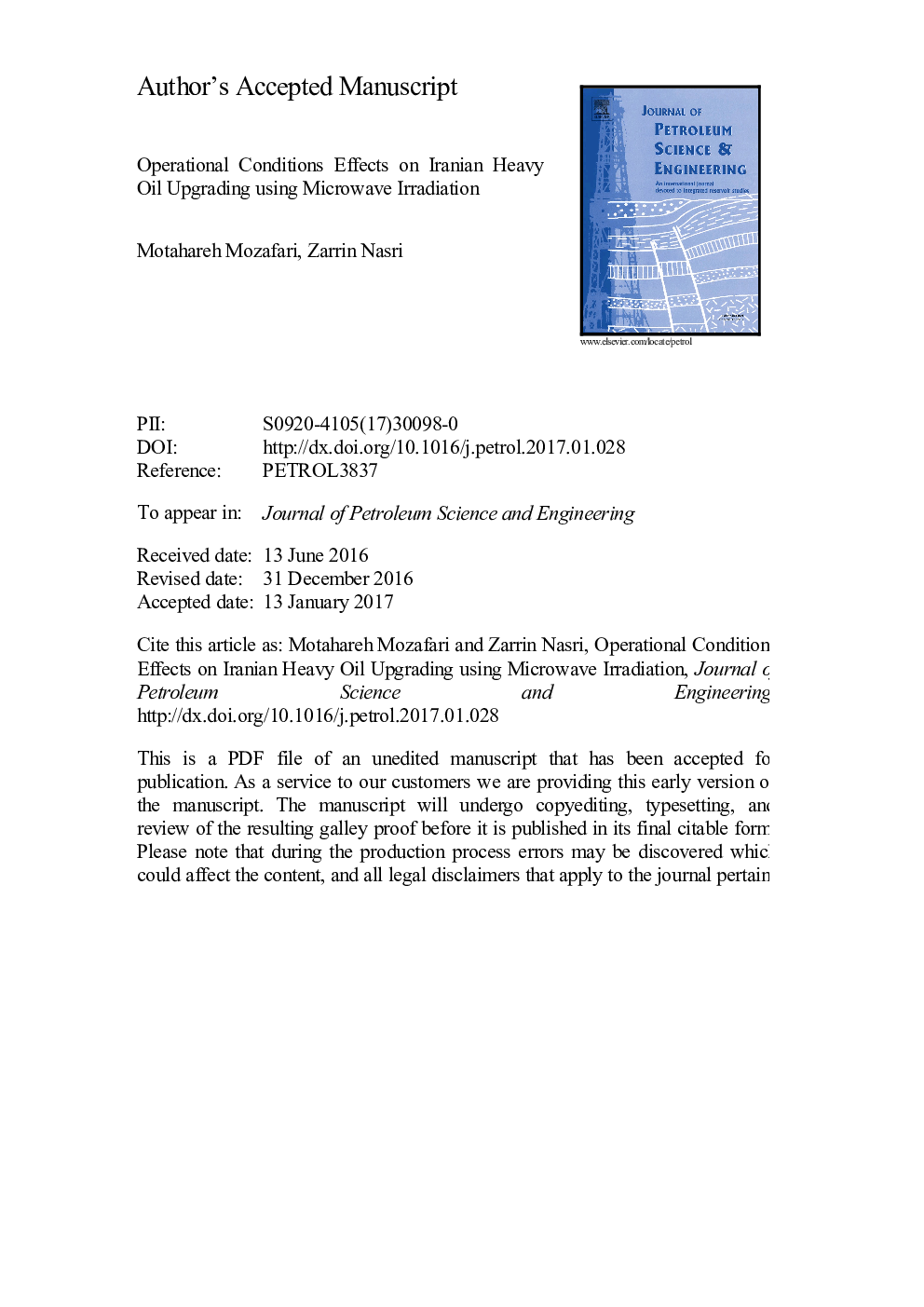| Article ID | Journal | Published Year | Pages | File Type |
|---|---|---|---|---|
| 5484360 | Journal of Petroleum Science and Engineering | 2017 | 30 Pages |
Abstract
Upgrading technology can be used to produce light petroleum from heavy crude oil. One of the new approaches in this area is application of microwave heating. This method has advantages in heavy crude oil upgrading processes. In this paper, the effective parameters on upgrading Iranian heavy crude oil using microwave irradiation have been studied for the first time. The investigated crude oil is from Iranian west Paydar field. The effects of various parameters, including power level, process time, various additives such as amount of sensitizer, and catalysts have been completely investigated. The performed tests to assess the influences of the parameters include measurement final temperature, API, asphaltene contents, viscosity, coke, and SARA experiment to determine the components of asphaltenes, saturates, aromatics, and resins. According to the results for the samples with no additives, radiation at low power levels has positive effects on oil characteristics. There is also the optimal radiation time. Adding active carbon as microwaves sensitizer, significantly improves the specification of oil; increases oil API, and decreases gravity and its asphaltene contents. It also causes increasing in process time and power levels upgrade the oil specifications. At the best conditions (power level, 50%; process time, 20Â min; activated carbon, 10Â wt%; catalyst, 4Â wt%), API, viscosity, and amount of asphaltenes have been increased 17.56% and reduced 33.73% and 30.5%, respectively. In addition, the results show that the iron catalyst is more desirable in comparison to the other catalysts.
Keywords
Related Topics
Physical Sciences and Engineering
Earth and Planetary Sciences
Economic Geology
Authors
Motahareh Mozafari, Zarrin Nasri,
